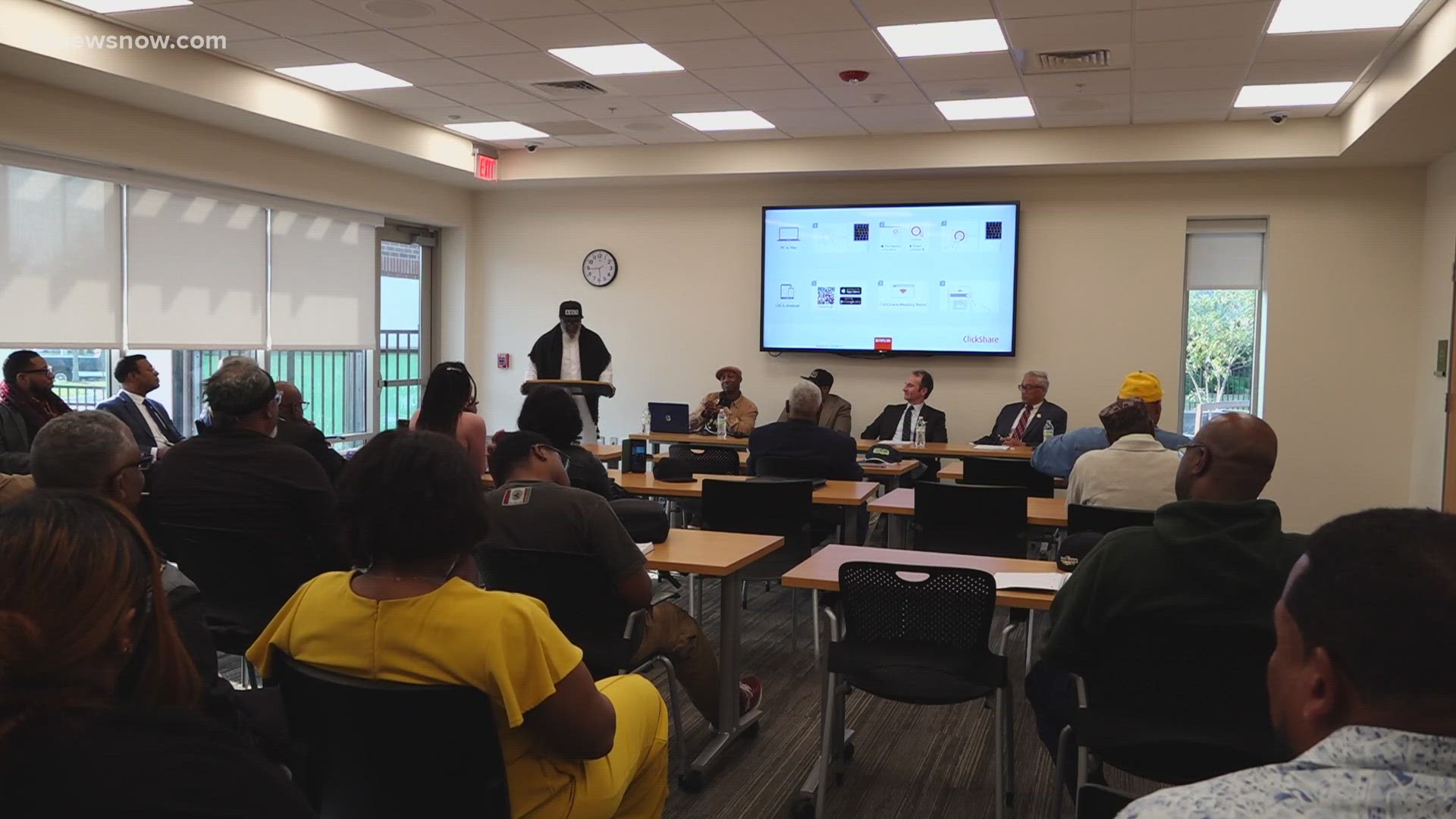NORFOLK, Va. — Norfolk residents discussed everything from voting restoration rights to public defender shortages and substance abuse in prison at a criminal justice forum on Tuesday evening.
Rep. Bobby Scott (D-3rd District), Norfolk Commonwealth’s Attorney Ramin Fatehi and prison rights advocates Hassan Shabazz and Shakil Ali made up the panel at the second annual forum, hosted by Norfolk’s NAACP branch.
Scott fielded the first questions, which focused on voter restoration rights for former prisoners. He started by talking about the importance of preventing crime from the get-go.
“You’re much better off building boys and girls clubs than new prisons,” Scott said.
He then transitioned into talking about how voter restoration rules have changed under Gov. Glenn Youngkin.
“Every governor since Chuck Robb in the 1980s has made the restoration of rights process easier. Every Democrat and every Republican,” explained Scott.
Since 2022, Virginians must individually request voter eligibility after their release from prison. This ended the state’s 2021 practice of automatically restoring the vote to all residents not currently incarcerated.
“There is evidence to show that if you get your rights back and are participating in the community, you’re less likely to commit a crime,” Scott continued. “So why would you want to deny someone the right to participate in the community and reduce crime?”
Norfolk Commonwealth’s Attorney Ramin Fatehi fielded the next questions, centered around public defender shortages. He explained the issue goes beyond public defenders and also concerns private, court-appointed counsel.
“If all three of us get arrested,” Fatehi explained, gesturing to the men on his left and right, “the public defender's office can’t represent all three of us, it’s a conflict. So one of us gets the public defender, the others get private court-appointed. As important as the public defender piece is, the payment of private, court-appointed people is probably the biggest problem.”
In Virginia, private, court-appointed counsel is paid a set rate of $90/hour by the state, but the total amount they can make is capped, depending on the type of crime. Fatehi says this leads to an unwillingness to pick up cases.
“We always, always, always need to make sure we’re feeding our court-appointed [counsel], so they’re not saying ‘forget it,’” Fatehi said.
In addition to these questions, two prison rights advocates, Hassan Shabazz and Shakil Ali, heard questions on substance abuse issues in prison and the so-called school-to-prison pipeline. Shabazz, like Scott, emphasized the need for preventative youth programming, especially for those living in areas with higher rates of violence.
“Some of these kids are ducking gunshots,” said Shabazz. “You wonder why they can’t go to school and concentrate? Some of them don’t want to go out their door to go to school and are afraid to get off the bus when they’re going back home.”

